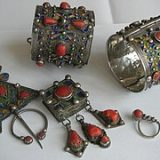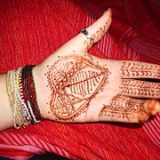Experience the Imilchil Marriage Festival: A Unique Celebration in the High Atlas Mountains
Located in the stunning High Atlas Mountains, the Imilchil Marriage Festival is a remarkable celebration of love and Berber culture. Every year, the village of Imilchil transforms into a lively hub of cultural activities as tribes from across the region gather to honor ancient traditions. The festival is particularly famous for its traditional mass weddings, where couples come together in a joyful expression of Berber unity. Attendees also get an authentic glimpse of Berber life through music, dance, handicrafts, and cultural contests.
If you’re looking for a festival that beautifully intertwines romance and tradition, the Imilchil Marriage Festival is a must-see. Below, you’ll find a comprehensive guide to this captivating event.
When to Attend the Imilchil Marriage Festival
The Imilchil Marriage Festival, often referred to as the “Betrothal Festival” or “Moussem of Imilchil,” takes place every September. While the specific dates may vary slightly due to the lunar calendar, it typically occurs during the second or third week of the month. Over three vibrant days, the festival draws locals and tourists alike, eager to witness the magnificence of Berber traditions in this remote area.
Planning Tip: To experience this festival, it’s essential to plan ahead! Since the dates can change, be sure to check local announcements or consult tour operators for the most recent information.
What to Expect: A Look into Berber Traditions
The Imilchil Marriage Festival is more than just weddings; it’s a vibrant celebration of Berber culture, woven with folklore and community spirit. Here’s a closer look at what you can expect during this unique cultural event:
The Heart of the Festival: Mass Weddings
At the center of the festival are the mass wedding ceremonies. Couples, primarily from the Aït Hadiddou tribe, come together to unite in a traditional Berber ceremony. This age-old practice signifies love and community unity. Legend has it that the festival originated from the story of star-crossed lovers from rival tribes who were forbidden to marry. In their honor, the festival now acts as a gathering for couples to get married and renew their vows.
Witnessing multiple couples in colorful traditional attire exchanging vows against the breathtaking backdrop of the High Atlas Mountains creates memories that will last a lifetime.
Immerse Yourself in Traditional Music and Dance
Throughout the festival, you’ll be treated to a rich tapestry of Berber music and dance performances. The infectious rhythms of drumming and lively ahidus dances fill the air with energy and joy. These musical traditions, passed down through generations, make your experience all the more special.
Whether you find yourself tapping your feet or joining in the dancing, the music of Imilchil is an integral part of the festival experience.
Explore Local Handicrafts and Souvenir Shopping


During the festival, a lively local market springs into action. Stalls brim with Berber handicrafts, rugs, pottery, jewelry, and traditional clothing. This is a fantastic opportunity to take home authentic Moroccan souvenirs while supporting local artisans.
Shopping Tip: Be sure to haggle respectfully, as it’s part of the local culture. Don’t miss the chance to purchase handcrafted rugs or jewelry as memorable keepsakes.
Adventure Awaits: Camel Races and Cultural Competitions
For those looking for adventure, the festival features camel races, horseback riding, and various competitive events that showcase traditional Berber skills. These activities energize the festival and allow participants to display their riding abilities. Watching a camel race across the mountainous terrain provides thrilling insights into Berber traditions.
Additionally, competitions in traditional games offer entertaining spectacles for both visitors and locals alike.
A Cultural Exchange in Imilchil
The Imilchil Marriage Festival is a melting pot of cultures, attracting visitors from around the world, creating an atmosphere of cultural exchange. Whether conversing with locals, learning about their customs, or simply observing the vibrant tapestry of Berber life, the festival is a gateway into a way of life that has remained largely unchanged for centuries.
Expect warm hospitality and friendly interactions that will enhance your understanding of Morocco’s rich Berber culture.
Essential Tips for Attending the Imilchil Marriage Festival
To make the most of your visit to the Imilchil Marriage Festival, some planning is necessary due to its remote location. Here are some helpful tips for enjoying this unique event:
- Accommodation Options Near Imilchil: As Imilchil is a small village, lodging options are limited. Booking in advance is essential to secure a spot in local guesthouses. Alternatively, consider camping near the festival grounds for an immersive experience.
- Traveling to Imilchil: The village is approximately a 4-5 hour drive from major cities like Marrakech or Fes. Renting a car is often the most convenient option, although guided tours are also available. Be prepared for a scenic, winding journey through the Atlas Mountains.
- Respecting Local Customs and Traditions: As with any cultural event, it’s crucial to respect local traditions. Dress modestly, ask for permission before photographing people, and be mindful of local sensitivities while participating in or observing the festival.
Join the Celebration: An Unforgettable Experience
The Imilchil Marriage Festival provides a rare opportunity to connect with the essence of Moroccan Berber culture. With its unique blend of romance, tradition, and celebration, it promises an unforgettable experience for travelers eager to explore Morocco’s rich cultural heritage. From mass weddings to cultural performances, this festival truly encapsulates love, life, and community.
If you’re planning a trip to Morocco in September, be sure to include the Imilchil Marriage Festival in your itinerary. It’s a cultural journey like no other, allowing you to immerse yourself in the timeless traditions of the Berber people.



